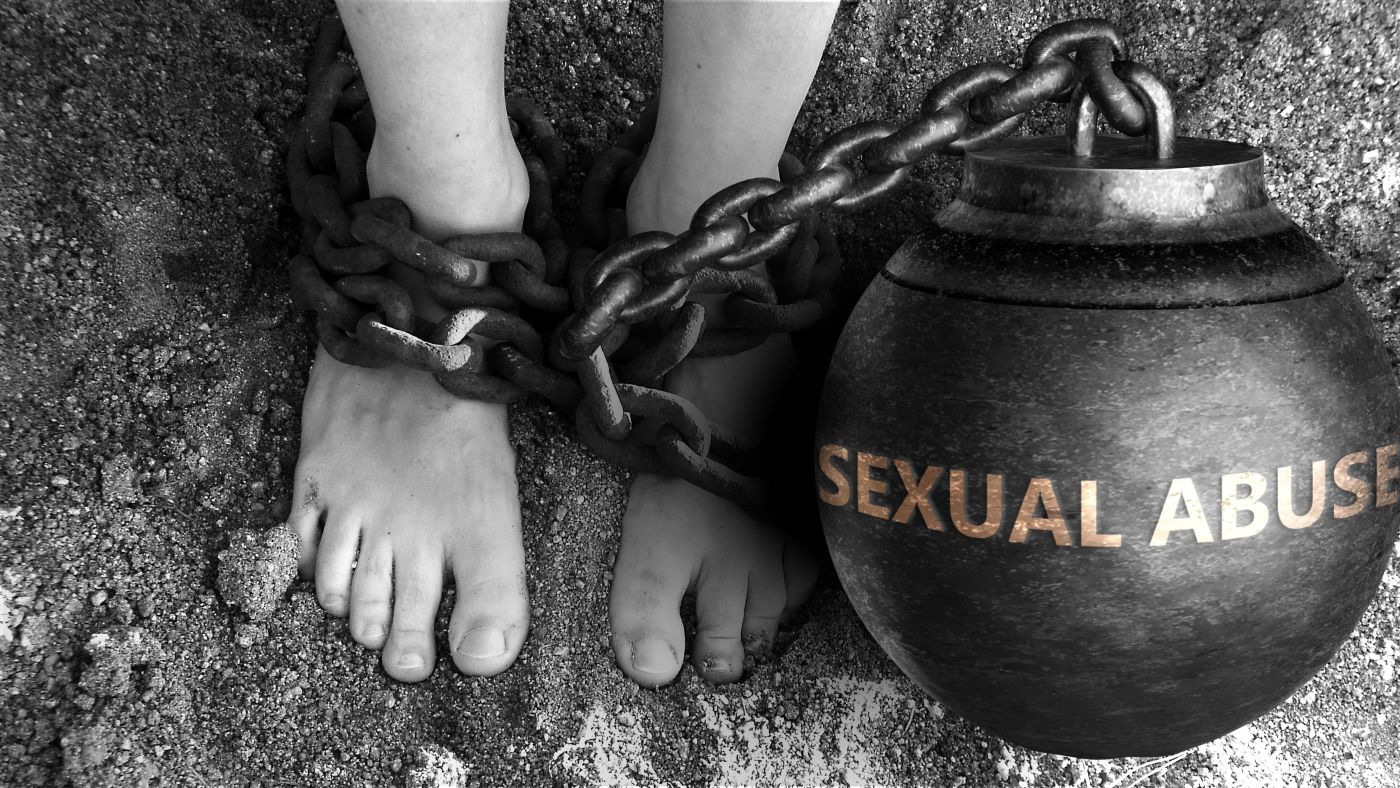
Sexual abuse leaves lasting emotional, psychological, and physical harm. For many survivors, the legal system can be a path toward accountability and justice. In Texas, sexual abuse victims may pursue several legal options, including civil lawsuits and criminal charges. Understanding these routes can help survivors make informed decisions about how to move forward.
At Guerra Law Firm PC, we're here to help sexual abuse victims and their families get justice and compensation. We serve clients in McAllen, Texas, and throughout Southern Texas. Our dedicated team is here to guide you through every step of the legal process.
Let's explore the legal options available for victims of sexual abuse.
Recognizing What Qualifies as Sexual Abuse
Sexual abuse includes any non-consensual sexual contact or behavior. This covers a wide range of acts, from molestation and assault to rape and sexual exploitation. Texas law defines these crimes under various statutes, including sexual assault, aggravated sexual assault, and indecency with a child.
Abuse can happen in many environments. Victims might experience it in schools, churches, workplaces, medical settings, or their own homes. The identity of the perpetrator—whether a teacher, employer, caregiver, or family member—doesn’t change the fact that the law prohibits such conduct.
Acknowledging abuse is a critical first step. Some victims may not immediately recognize that what happened to them qualifies as sexual abuse, especially when the abuse began in childhood or was carried out by someone in a position of trust.
The Difference Between Criminal and Civil Legal Action
Sexual abuse victims often have two distinct legal paths available: criminal prosecution and civil litigation.
Criminal Cases:
Criminal cases are legal proceedings brought by the state to address violations of the law, with the goal of holding offenders accountable for their actions.
Brought by the state of Texas through a district attorney.
Aim to punish the offender with imprisonment, fines, or probation.
Require proof beyond a reasonable doubt.
Understanding the framework of criminal cases—aimed at punishment and requiring proof beyond a reasonable doubt—helps clarify the legal process for anyone involved in or affected by criminal proceedings.
Civil Lawsuits:
Civil lawsuits are legal actions initiated by survivors seeking compensation for harm caused by others, typically aiming to address the damages resulting from the incident.
Brought by the survivor against the perpetrator or related parties (like institutions).
Seek monetary compensation for medical bills, therapy, lost wages, and emotional distress.
Require proof by a preponderance of the evidence, which is a lower burden than in criminal cases.
Understanding the structure of civil lawsuits, which focus on monetary compensation and require a lower standard of proof, is essential for those seeking justice through the civil legal system. Some victims pursue both types of actions. Even if a criminal case isn’t successful, a civil lawsuit may still be viable due to the different burden of proof.
When Criminal Charges Are an Option
Texas prosecutors may file charges after a survivor makes a report to law enforcement. Some cases move forward quickly, while others may take time to investigate. A police report often prompts interviews, forensic exams, or collection of physical evidence.
Victims are not responsible for prosecuting the offender; that’s the state’s role. However, their participation and willingness to testify can significantly affect the case’s direction. Victims have rights during the process, including the right to be informed, heard, and protected.
Texas law has a statute of limitations for most crimes, but it has been expanded for certain sex crimes. For instance, there is no statute of limitations for aggravated sexual assault of a child. Still, delays in reporting can affect the strength of a case, so it’s important to consult with law enforcement or an attorney as early as possible.
Civil Lawsuits and What They Can Accomplish
Civil cases allow sexual abuse victims to hold individuals or institutions financially accountable. In these lawsuits, the goal is not to imprison the abuser but to seek compensation for the harms suffered.
Victims may bring claims for:
Pain and suffering
Medical and psychological treatment costs
Lost income or reduced earning capacity
Loss of quality of life
In some cases, punitive damages may be awarded if the court finds especially harmful or intentional behavior.
Civil lawsuits can also be filed against third parties. For example, if a school failed to act on reports of a teacher’s misconduct, or if a religious institution ignored abuse complaints, they may share legal responsibility.
Statute of Limitations in Texas for Civil Claims
Texas has made adjustments to the civil statute of limitations for sexual abuse claims. As of 2019, adult survivors of childhood sexual abuse have up to 30 years from the time they turn 18 to file a civil lawsuit.
Adult victims generally have two years from the date of the abuse to file, but there are exceptions. For example, if the abuse was part of a continuous pattern or if the victim was mentally incapacitated at the time, the timeline might be extended.
Determining whether a claim is still viable can be difficult without legal guidance. That’s why it's important for survivors to consult with a legal professional about specific dates and facts.
Mandatory Reporting and Institutional Responsibility
Texas law requires certain professionals—such as teachers, doctors, nurses, and social workers—to report suspected abuse. Failure to report can lead to criminal charges. This requirement plays a significant role in uncovering abuse, especially in cases involving minors.
Institutions that employ or supervise individuals who commit abuse may face civil liability if they failed to act responsibly. This includes:
Hiring individuals with known histories of abuse
Ignoring warning signs or complaints
Failing to implement adequate safeguards
Victims may sue not only the abuser but also schools, churches, nursing homes, or employers when their conduct contributed to the abuse or made it possible.
Legal Protections for Victims During Litigation
Pursuing legal action can feel intimidating for sexual abuse victims, especially when it means facing their abuser or disclosing painful details. Texas law offers some protections to reduce that burden.
Courts may:
Allow testimony via closed-circuit television in certain cases.
Seal court records or limit public access.
Appoint victim advocates to provide emotional support during proceedings.
Victims are not alone. Legal professionals, victim advocates, and counselors can provide guidance throughout the process and help protect survivors from retaliation or harassment.
Legal Options Beyond Lawsuits and Prosecutions
Some survivors may not want to file charges or sue but still want acknowledgment or closure. In such cases, alternative paths may help, such as:
Protective orders: Survivors can petition for court orders to keep their abuser away.
Victim compensation programs: Texas offers financial assistance for counseling, lost wages, and medical costs related to abuse.
Restorative justice programs: In some situations, survivors and offenders may voluntarily participate in mediated dialogue, though this isn’t appropriate or available for every case.
These options may provide a sense of justice or safety without requiring full legal proceedings.
The Role of Civil Attorneys in Sexual Abuse Cases
Legal representation can help survivors make decisions about how to proceed. Attorneys can assess the merits of a case, identify responsible parties, and file claims on behalf of the victim. In many civil cases, attorneys work on a contingency fee basis, meaning they only get paid if the case is successful.
Attorneys can also handle communication with defendants and institutions, sparing the survivor from direct contact. In cases where public exposure is a concern, attorneys may request confidentiality agreements or court orders to protect a victim’s identity.
Choosing legal counsel isn’t about reliving trauma—it’s about taking control of the situation with the support of someone who understands how to move the process forward.
Damages and Compensation in Civil Sexual Abuse Cases
Monetary damages awarded in civil sexual abuse cases vary depending on the facts of each case. Courts may consider factors such as:
The severity and duration of the abuse
The psychological impact on the survivor
The extent of institutional negligence
The cost of long-term care or therapy
While no amount of compensation can undo the trauma, financial recovery can give survivors the means to access treatment, take time off work, or regain financial stability.
Texas-Specific Laws Supporting Survivors
Texas has passed several statutes that support sexual abuse victims, particularly children. These include:
Extended limitations periods for civil lawsuits involving childhood sexual abuse
Broad mandatory reporting laws that apply to any adult who suspects abuse
Civil penalties for institutions that cover up abuse or retaliate against whistleblowers
Texas law recognizes the long-term harm abuse can cause and has begun to reflect that in the way it treats survivors’ rights.
Moving Forward With Legal Action
Taking legal action is a personal decision. Some survivors seek justice through the courts soon after abuse occurs. Others come forward years later. There is no universal timeline that fits every experience.
What matters is that survivors know their options and understand they’re not without recourse. Whether pursuing a lawsuit, filing a report, or accessing compensation funds, legal action can be part of the healing process.
Resources for Sexual Abuse Victims in Texas
For those considering legal action or looking for support services, several statewide resources are available:
Texas Association Against Sexual Assault (TAASA)
Office of the Texas Attorney General Crime Victims’ Compensation Program
Texas Department of Family and Protective Services
Local legal aid organizations
These entities offer referrals, counseling services, and assistance with filing reports or applications for aid.
Sexual abuse victims often carry deep wounds long after the abuse ends. While no legal process can erase the pain, the justice system can offer paths toward acknowledgment, accountability, and recovery. Texas law provides several legal options—criminal charges, civil lawsuits, compensation programs, and protective measures—to help survivors reclaim a sense of control.
Each survivor's story is different, and so is the path forward. What’s important is knowing that the law recognizes the harm caused by abuse and allows perpetrators to be held accountable.
Contact Guerra Law Firm PC Today
If you or someone you know has experienced abuse, legal support is available. Taking that first step may feel difficult, but it can lead to a future grounded in dignity and healing. Serving McAllen, Texas, and Southern Texas, Guerra Law Firm PC is here to fight for justice on your behalf. Call now to schedule a confidential consultation.


